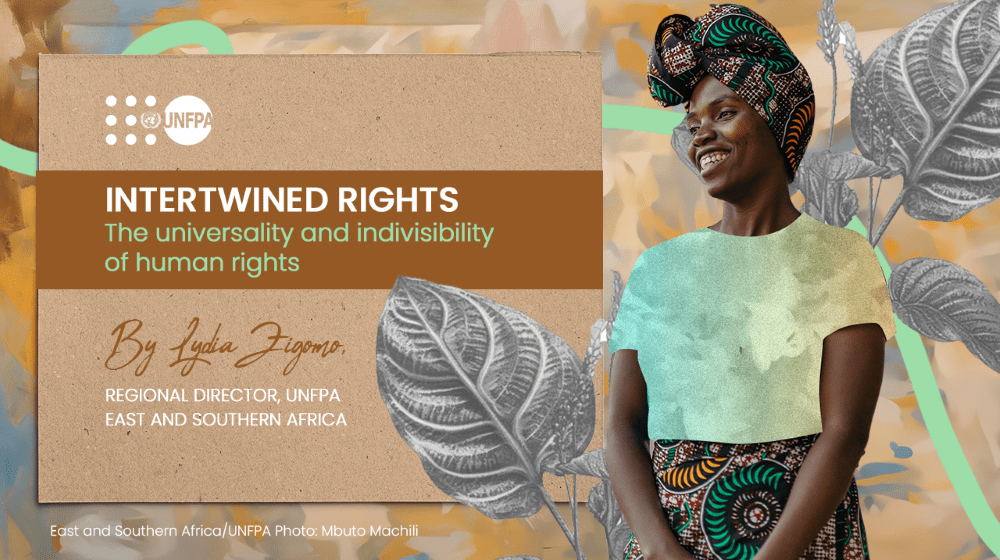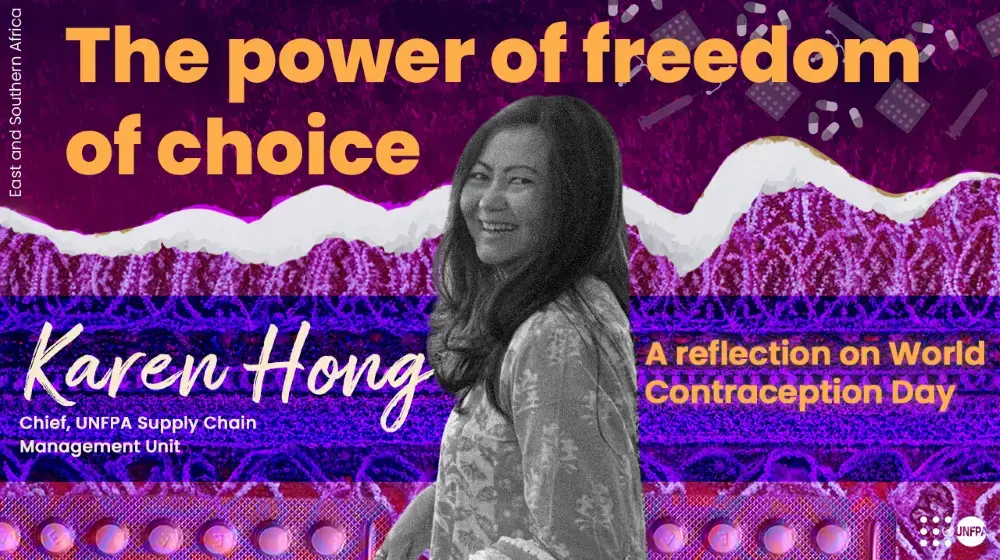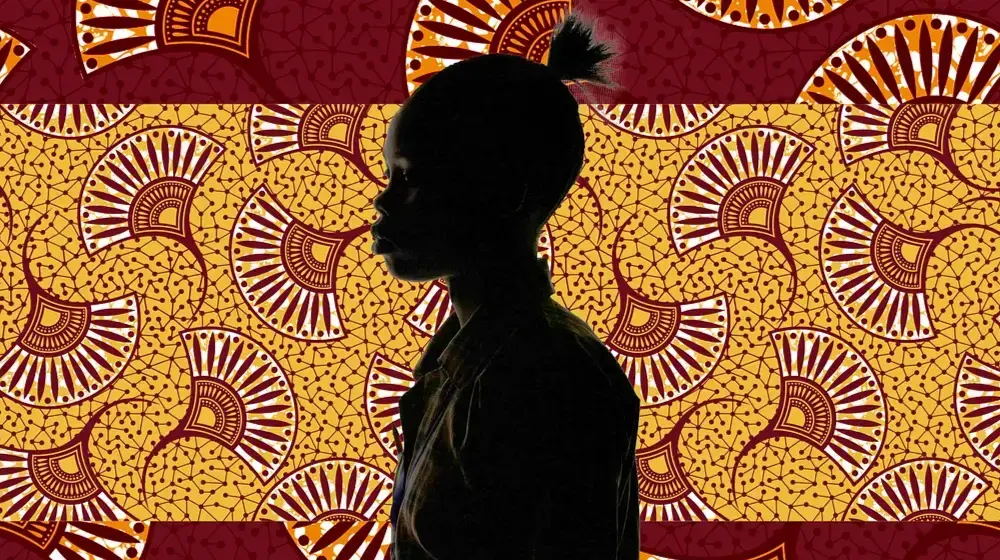By Lydia Zigomo , Regional Director, UNFPA East and Southern Africa
When I was a young student, I overheard a group of women talking in a local bookstore in Harare, the capital city of Zimbabwe. They were both congratulating and lamenting the birth of a baby girl. I wondered why they were congratulating the young mother while also commiserating with her. After all, the birth of a baby girl should be a symbol of hope - ‘tariro’ being the operative word in Shona. Their words stayed with me, a bittersweet reminder of the dual reality many girls face – celebrated for their arrival but burdened by the challenges that await them simply because of their gender.
Like many other girls in East and Southern Africa, Tariro’s path (the name I choose to remember that little girl by), was shaped by forces beyond her control—early marriage, unplanned pregnancy, and limited access to education. Their story revealed a truth that had echoed in that bookstore years before: a girl’s potential can only be fully realized when her rights are upheld—when education, health, and equality intersect to shape her future in an environment free from violence.
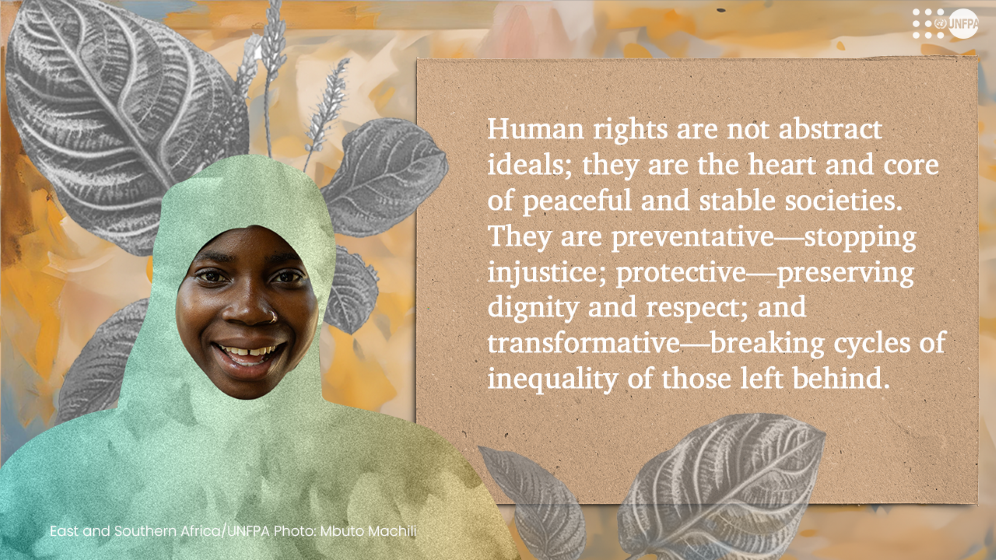
Human rights are not abstract ideals; they are at the heart and core of peaceful and stable societies. They are preventative—stopping injustice; protective—preserving dignity and respect; and transformative—breaking cycles of inequality of those left behind.
As we observe Human Rights Day, we cannot overlook that human rights are indivisible. All rights are interconnected—none can be fully enjoyed in isolation. Upholding one right requires simultaneously advancing others, such as health, education, and freedom from violence.
The Intersectionality of rights
This principle applies especially to Sexual and Reproductive Health and Rights (SRHR). These rights are the anchors to dignity and autonomy, and the organic ability of every human being to make informed decisions about their body and life. In addition, SRHR has broader goals, from achieving gender equality to creating equitable societies.
In East and Southern Africa, the realities of young people like Tariro highlight the intersectionality of rights. The Maputo Protocol and the Universal Declaration of Human Rights unequivocally state that bodily autonomy is a cornerstone of equality. However, this remains an aspiration rather than a reality.
More than 218 million women and girls globally do not have access to modern contraceptives, and we see many adolescent girls facing barriers to education due to unplanned pregnancies. These statistics equate to lives constrained by systemic inequities. Women and girls with no access to their rights have rippling and devastating effects, ranging from inability to realise their economic opportunities, hampering the attainment of their educational goals, and perpetuating cycles of poverty.
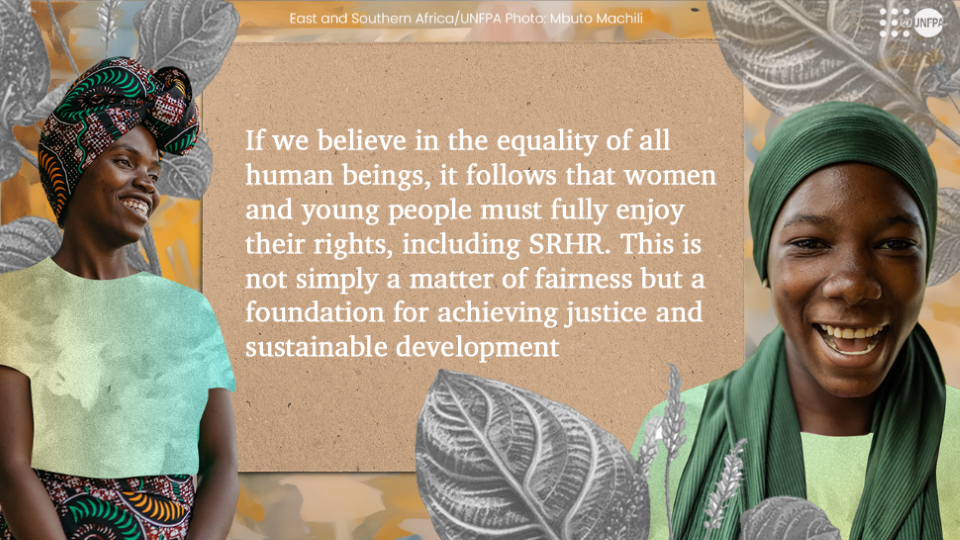
If we believe in the equality of all human beings, it follows that women and young people must fully enjoy their rights, including SRHR. This is not simply a matter of fairness but a foundation for achieving justice and sustainable development.
As UN Secretary-General António Guterres said, “Human rights are the foundation for human dignity and the cornerstone of peaceful, inclusive, fair, equal, and prosperous societies.” His words underline the importance of prioritizing human rights, particularly those of women and girls, as a universal imperative. At the heart of this commitment lies the urgent need to address structural barriers—poverty, gender-based violence, and harmful practices—that prevent the realization of these rights.
Inaction is not an option
We have six years until 2030, the deadline for the Sustainable Development Goals (SDGs), and inaction is not an option. For every delayed decision to uphold these rights equals to a lost opportunity in transforming lives. Justice delayed is in effect justice denied.
In crisis settings, in a peace environment, and in transition contexts, UNFPA ensures the continuation of SRHR services, providing life-saving support to women and girls. In 2024, UNFPA assisted millions with services, including reaching 3.6 million people with gender-based violence prevention and response services across 53 countries.
The journey toward equality is neither linear nor easy. It requires sustained effort, bold leadership, and collective action. We need to invest together in women’s rights because it is investing in humanity’s future, while also committing to the universality and indivisibility of human rights.
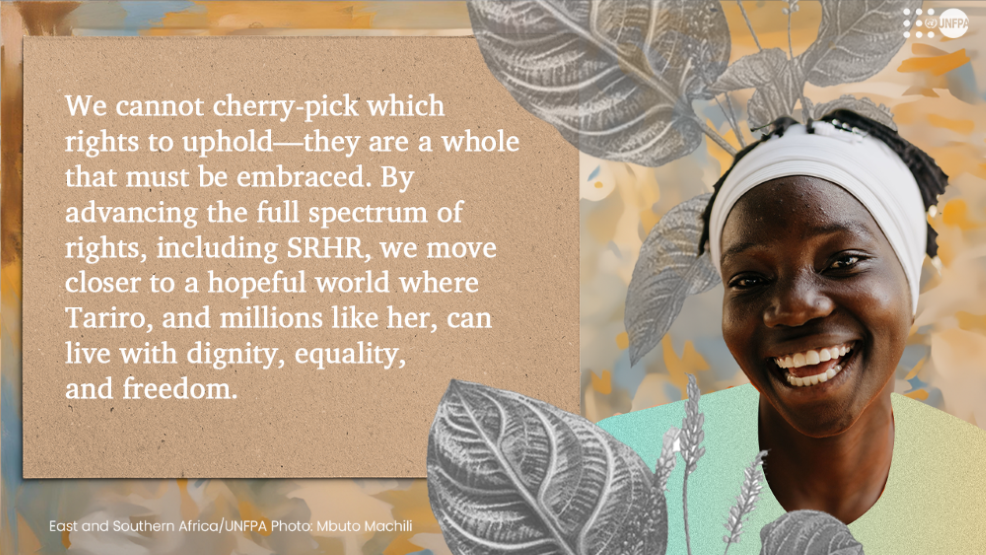
We cannot cherry-pick which rights to uphold—they are an intrinsically interconnected whole that must be embraced. By advancing the full spectrum of rights, including SRHR, we move closer to a hopeful world where Tariro, and millions like her, can live with dignity, equality, and freedom.

